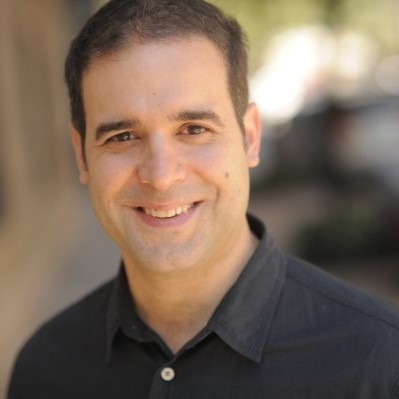
Green Success Stories sat down with Phil Derasmo, Co-Founder of Queen of Raw, to learn about their vision for their science-based software that drives supply chain efficiencies for more sustainable and profitable business.
Tell us a little bit about you and your background:
I’m the Co-founder and CTO/COO of Queen of Raw. My background is that I’m an environmental engineer, entrepreneur and technical co-founder that loves to build web applications to automate solutions to business problems. As an environmental engineer working for the Department of Environmental Protection, I worked on water quality improvement projects where we engineered and built solutions to monitor, quantify and improve water quality. Later on, I worked on Wall Street as a technologist building software applications to automate and drive business processes around the world. At Queen of Raw, with our Materia MX software, I was able to find my dream job of building science and engineering based software that helps solve a global business problem that in turn helps improve the environment.
When I first met, my business partner, Stephanie Bennedetto, she had previously been manufacturing a new sustainable textile but it was all too obvious that the world didn’t need another new textile and instead needed to be more efficient in the way we used what we have and how we dealt with our excess. We saw that excess inventory was taking up space collecting dust in warehouses, being burned or buried in landfills. Then the Covid pandemic hit and further complicated the issue, as companies lost hundreds of billions of dollars due to supply chain excess as the mismatch in supply and demand grew. The old way of doing business and managing a company’s excess inventory not only is no longer environmentally sustainable but also not sustainable for business growth in general. We built out our Materia MX software to improve supply chain efficiency which in turn helps businesses run more efficiently which is fundamentally more environmental and financially sustainable. I believe that automation is the key to successful business software, so we built the tools along with our automations and algorithms to drive the process for our customers so that they can all benefit from a more efficient supply chain which is better for our environment and a business’s bottom line.
What would you do with $1 Billion dollars?
If I had a billion dollars, I would leverage it to help scale our software and teams to make our solution available to every business. I think this is kind of an interesting question because I always think about what I would do with a billion dollars and then do it anyway without the money. Although it makes things happen alot faster, typically, money is not always the initial blocker to getting something done – I think that if one plans to do something that they love to do when they have a billion dollars – well then making it happen at all is usually more about initiative, time and endurance. And then everything else that you need and want to do falls into place to do it – of course, its just a heck of a lot faster with a billion dollars.
Why do you think sustainability is such an important topic today?
I think sustainability is such an important topic today because I believe we are in the middle of a new industrial revolution, one that is based on doing more but more importantly designing new and adapting existing processes to fulfill our current business needs while making sure we balance the economic growth, environmental impacts and the future of the people of our planet.
What do you envision your industry looking like 10 years from now?
I envision the future of our industry as one where sustainable business practices become more truly embraced and fully transition to the new common way of doing business. Right now, we are just getting started and I think not everyone yet realizes the true business benefit of being more sustainable. I believe that being more sustainable via better excess inventory management is not only good for the environment but also great for your business because, for example, our science based software promotes sustainability by running your business more efficiently with less waste and higher profit margins.
What can the average person do to make a difference?
The average person can make a difference by being more conscious about their day to day actions and how it impacts the world around them. Everything from how you wash your clothes to what you buy to how you travel throughout the day or how you heat your home has an environmental impact. It doesn’t mean you have to stop doing it, just be little more efficient and less wasteful and it can make a big difference. For example, most folks don’t realize that many of their clothes can (or should) be washed in cold water. Not only does it save energy, but for many textile products they actually will last longer.




